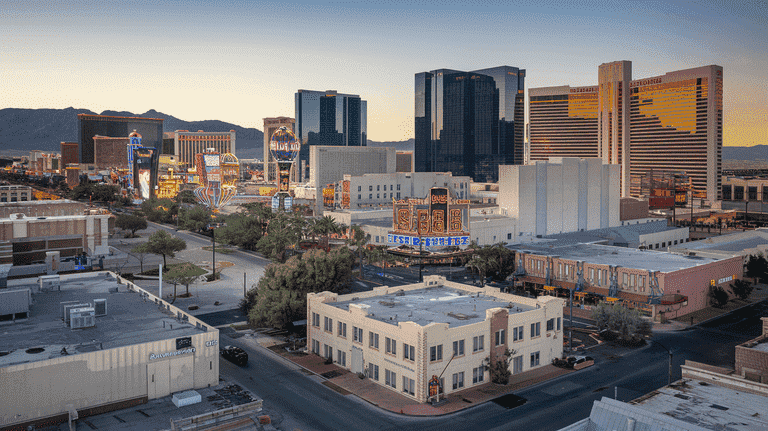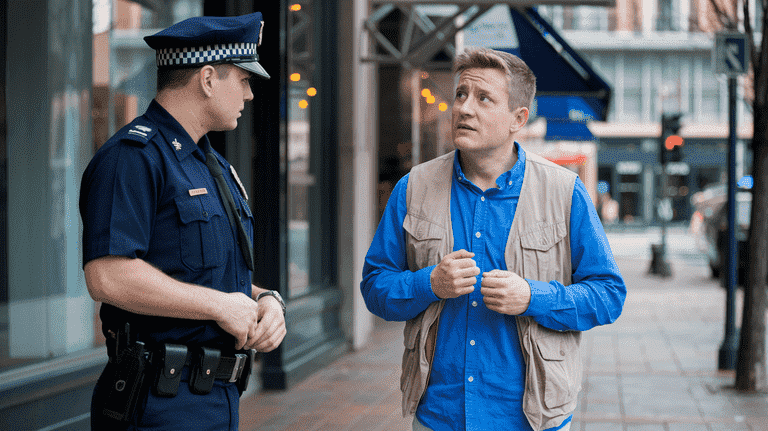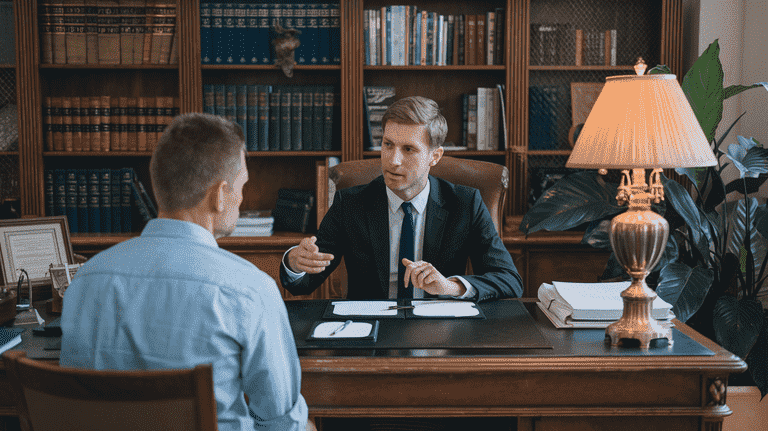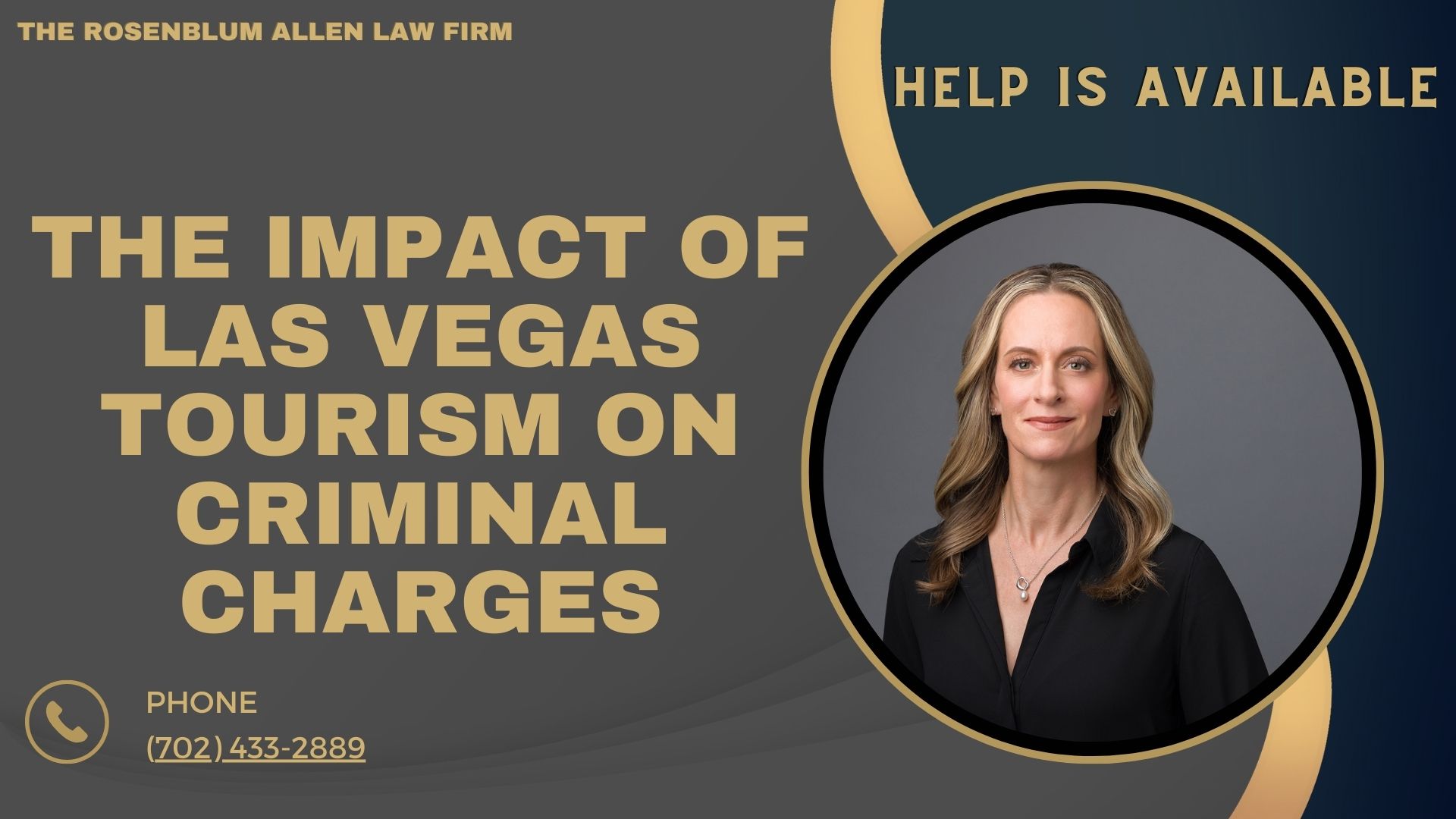Las Vegas, often called the “Entertainment Capital of the World,” attracts millions of visitors yearly. Its vibrant nightlife, casinos, shows, and events make it a top tourist destination. However, with the influx of visitors comes a rise in criminal activity. This article explores how tourism impacts criminal charges in Las Vegas, shedding light on the types of crimes commonly associated with tourists, the factors contributing to these crimes, and the legal consequences.
Las Vegas Tourism: An Overview
History and Growth of Tourism in Las Vegas
Las Vegas has come far from its early days as a small desert town. The city began to boom in the 1930s with the construction of the Hoover Dam, bringing workers and visitors alike. By the 1950s, Las Vegas had established itself as a central entertainment hub, thanks to its casinos and glamorous shows. Today, it’s a global destination known for its vibrant entertainment scene.
Demographics of Visitors: Who Visits Las Vegas?
Las Vegas attracts a diverse crowd from all over the world. Here’s a snapshot of the typical visitor:
- Age: Most visitors are between 21-49 years old.
- Income: The average household income of visitors is above the national average, reflecting the cost associated with enjoying the city’s attractions.
- Origin: While many visitors are from other parts of the United States, a significant percentage come from countries like Canada, the UK, and Australia.
Popular Tourist Attractions and Activities
Las Vegas offers a wide array of attractions and activities that draw in tourists year-round:
- Casinos: The city’s casinos are legendary, from poker to slot machines.
- Shows and Entertainment: Las Vegas has world-class performances, including magic shows, concerts, and theatrical productions.
- Nightlife: The city boasts a vibrant nightlife, with numerous clubs, bars, and lounges.
- Shopping: High-end shopping centers and boutiques cater to visitors looking for luxury items.
- Outdoor Activities: Beyond the Strip, visitors can explore nearby natural attractions like Red Rock Canyon and the Grand Canyon.

The Link Between Tourism and Crime in Las Vegas
Analysis of Crime Rates During Peak Tourist Seasons
Las Vegas sees a noticeable increase in crime rates during peak tourist seasons.
- Events like New Year’s Eve and significant conventions tend to correlate with a spike in certain types of crime, particularly those involving theft and assault.
- Statistical Evidence: Data from local law enforcement shows that there was an uptick in violent and non-violent crimes during these periods.
- Comparative Analysis: Crime rates during these high-traffic periods are significantly higher than during off-peak times, illustrating a clear link between tourism and criminal activity.
Types of Crimes Associated with Tourism
Tourism in Las Vegas is associated with several types of crimes, many of which involve visitors as both victims and perpetrators.
Petty Theft and Larceny
- Common Scenarios: Tourists, often distracted or unfamiliar with their surroundings, are frequent targets for pickpockets and petty thieves.
- Prevention Tips:
- Keep valuables secured and out of sight.
- Be aware of your surroundings, especially in crowded areas.
- Use hotel safes to store important documents and valuables.
Assault and Battery
- Alcohol-Related Incidents: The city’s nightlife, coupled with high alcohol consumption, leads to numerous altercations.
- Nightlife and Bar-Related Altercations: Conflicts often arise in bars and clubs, where alcohol impairs judgment and escalates situations.
Drug-Related Offenses
- Drug Possession and Usage Among Tourists: The relaxed attitude towards certain substances in Las Vegas leads to an increase in drug-related offenses.
- Legal Repercussions: Tourists caught with illegal substances face strict penalties, including fines and jail time.
DUI and Traffic-Related Offenses
- Influence of Alcohol and Drugs on Driving: Many tourists underestimate the effects of alcohol and drugs, leading to impaired driving.
- Statistics on DUI Arrests Involving Tourists: DUIs are among the most common offenses involving tourists, with significant legal consequences, including potential jail time and hefty fines.
Factors Contributing to Tourist-Related Criminal Charges
Influence of Alcohol and Drugs
One of the most significant factors contributing to criminal charges among tourists in Las Vegas is the influence of alcohol and drugs. The city’s reputation for non-stop partying and easy access to substances creates an environment where overindulgence is common.
- Accessibility of Alcohol: Las Vegas is known for its liberal alcohol laws. Alcohol is available around the clock, often with free drinks offered in casinos. Many tourists lose track of how much they’ve consumed, leading to impaired judgment and risky behavior.
- Prevalence of Drug Use: Drugs, both legal and illegal, are readily available in Las Vegas. Tourists often feel that the city’s “anything goes” vibe extends to drug use. However, this can lead to serious legal issues, especially for those unfamiliar with Nevada’s strict drug laws.
Cultural Perception of Las Vegas as a “No-Rules” Destination
Las Vegas has long marketed itself as a place where anything can happen. The famous slogan, “What happens in Vegas, stays in Vegas,” reinforces the idea that standard rules don’t apply. This perception can have dangerous consequences.
- “What Happens in Vegas” Mentality: Many tourists arrive in Las Vegas believing they can do things they wouldn’t normally do at home. This leads to behavior that is often reckless and sometimes illegal.
- Impact on Tourists’ Behavior and Decision-Making: Some visitors make poor decisions because they believe their actions in Las Vegas will have no real-world consequences. This can include everything from public intoxication to more serious crimes like theft or assault.
High Volume of Visitors and Law Enforcement Challenges
The number of visitors to Las Vegas poses significant challenges for local law enforcement. Maintaining order is no small task, with millions passing through each year.
- The strain on Local Law Enforcement Resources: The constant influx of tourists means law enforcement is always on high alert. Police must manage everything from minor infractions to significant incidents, often with limited resources.
- Response Times and Effectiveness of Crime Prevention Strategies: High volumes of tourists can lead to slower response times from law enforcement. Additionally, while crime prevention strategies are in place, they are sometimes overwhelmed by the number of incidents.

Impact of Criminal Charges on Tourists
Legal Consequences for Tourists Charged With Crimes
When tourists in Las Vegas are charged with crimes, the legal process can be overwhelming, especially for those unfamiliar with Nevada’s legal system.
- Arrest Procedures and Processing:
- Immediate Steps After an Arrest: Tourists are typically taken to a local police station for processing. This includes fingerprinting, photographing, and entering the individual into the system.
- Processing Times and Bail Options: Processing times can vary, but once completed, the accused may have the option to post bail. Bail amounts depend on the severity of the crime, and failing to post bail can result in extended time in custody.
- Court Proceedings and Potential Penalties:
- Timeline for Court Appearances: After the initial arrest, tourists must attend court hearings, which may require them to extend their stay in Las Vegas or return later.
- Fines, Jail Time, and Other Penalties: Penalties vary depending on the crime but can include fines, community service, probation, or jail time. More severe offenses can lead to significant legal consequences, including long-term imprisonment.
Long-Term Impact on Tourists’ Lives
A criminal charge in Las Vegas can have lasting effects, extending far beyond the vacation itself.
- Criminal Records and Future Implications: A criminal record can follow a tourist back home, impacting their future in many ways. This includes difficulties in finding employment, securing housing, and even traveling to certain countries.
- Effects on Employment and Travel: Many employers conduct background checks, and a criminal record can be a red flag. Additionally, countries like Canada have strict entry requirements and may deny entry to those with criminal records.
- Options for Legal Representation in Las Vegas:
- Finding a Local Attorney: It’s crucial for tourists facing charges to find a local attorney who understands Nevada’s laws. Local attorneys can provide the best defense and guide clients through the legal process.
- Importance of Understanding Local Laws: Each state has its laws, and Nevada is no different. Tourists need to be aware of these laws and the potential consequences of breaking them.
Impact of Tourism-Related Crime on Las Vegas
Economic Impact on the City
Crime related to tourism affects more than just the individuals involved; it also has broader implications for Las Vegas as a whole.
- Costs of Crime Prevention and Law Enforcement: The city spends millions yearly on law enforcement and crime prevention strategies. These costs are directly related to the high volume of tourists, many requiring police attention.
- Effect on Tourism Revenue and Reputation: While tourism is vital to the Las Vegas economy, crime can damage the city’s reputation. Negative perceptions can deter potential visitors, impacting overall revenue.
Social and Community Impact
The social effects of tourism-related crime extend beyond the tourists and the local community.
- Effect on Local Residents and Neighborhoods: Residents often bear the brunt of the negative consequences of tourism, including increased crime rates in their neighborhoods. This can lead to a strained relationship between locals and tourists.
- Public Perception of Safety in Las Vegas: High-profile crimes involving tourists can lead to concerns about safety, both among residents and potential visitors. Maintaining a perception of safety is crucial for the city’s tourism industry.
Measures to Mitigate Tourism-Related Crime
Las Vegas has implemented several measures to reduce the impact of tourism-related crime.
- Law Enforcement Initiatives: Local law enforcement has implemented specific initiatives targeting tourist-related crimes. These include increased patrols in tourist-heavy areas and specialized units focused on crimes like theft and DUI.
- Community Outreach and Education Programs: Educating tourists and residents about safety is critical. Outreach programs aim to raise awareness about common risks and provide tips on how to stay safe.
- Collaboration Between Businesses and Law Enforcement: Casinos, hotels, and other businesses work closely with law enforcement to monitor activity and report suspicious behavior. This collaboration helps prevent crime before it occurs.
These sections comprehensively cover the factors contributing to tourist-related criminal charges, the impact on tourists, and the broader implications for Las Vegas. Each point is designed to be clear and engaging, making it easier for readers to understand the complex issues.

Case Studies
High-Profile Cases Involving Tourists in Las Vegas
Examining real-life cases helps illustrate the complexities of tourism-related criminal charges in Las Vegas. These high-profile cases provide insight into the types of crimes tourists may commit and the serious legal consequences that can follow.
Overview of Notable Cases
Here are a few notable cases that have garnered significant attention:
- The MGM Grand Brawl (2019): A large fight broke out among several tourists at the MGM Grand Casino. What started as a minor altercation quickly escalated, leading to multiple arrests for assault and battery. The incident was widely covered by the media, highlighting the potential for alcohol-fueled violence in Las Vegas.
- The “Hangover” Theft Case (2015): A group of tourists, inspired by the movie The Hangover, decided to “recreate” the wild antics depicted in the film. This led to several instances of petty theft, including stealing hotel property and items from local businesses. The tourists were apprehended and faced significant fines and legal fees.
- The DUI Tragedy on the Strip (2013): A tourist, heavily intoxicated after a night of partying, decided to drive back to their hotel. The resulting DUI crash led to the death of a pedestrian on the Las Vegas Strip. The tourist was charged with vehicular manslaughter and received a lengthy prison sentence.
Analysis of Legal Outcomes and Public Reactions
These cases highlight the severe consequences tourists can face when engaging in criminal behavior in Las Vegas:
- Legal Outcomes: In these cases, the tourists faced severe legal repercussions. These ranged from hefty fines and community service to extended jail time and long-term probation. The Las Vegas legal system takes a firm stance on crimes tourists commit, aiming to deter future incidents.
- Public Reactions: These high-profile cases often spark public debate about the impact of tourism on Las Vegas. While some argue that tourists should be held accountable for their actions, others believe that the city’s culture and marketing contribute to reckless behavior. These incidents also lead to discussions about the need for stricter regulations and increased law enforcement presence in tourist-heavy areas.
Lessons Learned from Past Incidents
There are important lessons for law enforcement and tourists to learn from these cases.
How These Cases Have Influenced Law Enforcement and Legal Practices
Law enforcement agencies in Las Vegas have adapted their strategies in response to these high-profile cases:
- Increased Surveillance: Casinos and hotels have invested in more advanced surveillance systems to monitor potential criminal activity. This helps identify and apprehend suspects quickly.
- Stricter Enforcement of Alcohol Laws: In response to incidents involving alcohol, Las Vegas has enforced stricter regulations on alcohol sales and consumption, particularly during significant events.
- Specialized Task Forces: The creation of specialized task forces to handle tourist-related crimes has improved the efficiency of law enforcement in dealing with such incidents.
Changes in Public Policy or Legislation as a Result
These cases have also led to changes in public policy and legislation:
- Tighter DUI Laws: The DUI tragedy led to stricter DUI laws in Nevada, including harsher penalties and mandatory alcohol education programs for offenders.
- Tourist Education Campaigns: The city has launched campaigns to educate tourists about the legal risks of certain behaviors, particularly those related to alcohol and drug use.
- Increased Collaboration with Businesses: There’s now greater collaboration between businesses and law enforcement to ensure a safer environment for tourists and locals.

Legal Support for Tourists Facing Criminal Charges
The Role of Local Attorneys in Defending Tourists
Navigating the legal system can be daunting when tourists face criminal charges in Las Vegas. Local attorneys play a crucial role in defending these individuals, offering expertise that can significantly affect the outcome of their cases.
Importance of Hiring a Local Attorney
Hiring a local attorney is vital for tourists facing criminal charges in Las Vegas:
- Understanding of Local Laws: Local attorneys have an in-depth knowledge of Nevada’s legal system, including the specific laws and regulations that may affect tourists. This knowledge is crucial for building a strong defense.
- Familiarity with Local Courts and Judges: A local attorney is familiar with the court system, including the judges and prosecutors who may be involved in the case. This familiarity can be advantageous when negotiating plea deals or arguing a case in court.
- Access to Local Resources: Local attorneys have access to resources and contacts that can help defend a tourist, investigators, and local bail bondsmen.
Common Defenses Used in Tourism-Related Cases
Attorneys often use specific defense strategies tailored to the types of crimes tourists are charged with:
- DUI Cases:
- Challenge the Validity of the Arrest: Attorneys may challenge the legality of the traffic stop or the accuracy of the breathalyzer test.
- Negotiating Plea Deals: In some cases, attorneys can negotiate a reduced charge, such as reckless driving, instead of a DUI, which carries lighter penalties.
- Drug Possession and Usage:
- Unlawful Search and Seizure: Attorneys may argue that the drugs were discovered through an illegal search, violating the Fourth Amendment.
- Lack of Knowledge: The defense might claim that the tourist was unaware they had illegal substances, particularly in cases involving shared or borrowed items.
Resources for Tourists Facing Criminal Charges
Tourists facing criminal charges in Las Vegas have several resources to help them navigate the legal process.
Legal Aid and Support Services
Various legal aid organizations offer support to tourists who may not be able to afford private legal representation:
- Nevada Legal Services: Provides free legal aid to those who qualify, including tourists facing criminal charges.
- Pro Bono Attorneys: Some local attorneys offer pro bono services to needy individuals, including tourists.
Contact Information for Local Legal Assistance
Tourists need to have access to legal assistance as soon as possible. Here are some important contacts:
- Las Vegas Bar Association: A resource for finding local attorneys, including those defending tourists.
- Public Defender’s Office: Tourists who cannot afford an attorney may be eligible for representation by a public defender.
- Consulate Services: Tourists from other countries can contact their consulate for assistance, including legal referrals and support during the legal process.

Breaking It All Down
Throughout this article, we’ve explored the significant impact of Las Vegas tourism on criminal charges. We started by examining the unique environment of Las Vegas, where the allure of endless entertainment and a “no-rules” mentality can sometimes lead tourists into legal trouble. The data clearly shows that crime rates tend to spike during peak tourist seasons, with common offenses ranging from petty theft to more serious crimes like DUI and assault.
We also looked at the factors that contribute to these crimes, including the easy access to alcohol and drugs, the cultural perception of Las Vegas as a place where “anything goes,” and the challenges faced by local law enforcement in managing such a high volume of visitors. The consequences for tourists who find themselves on the wrong side of the law can be severe, affecting their immediate circumstances and their long-term futures.
Moreover, we discussed several high-profile cases highlighting the potential dangers tourists face and how these incidents have influenced law enforcement practices and public policy in Las Vegas. Finally, we examined the importance of legal support for tourists, emphasizing the need for local legal representation and providing resources to help those who may find themselves in legal trouble.

Frequently Asked Questions
What should I do if I'm arrested while visiting Las Vegas?
If you’re arrested in Las Vegas, the first step is to remain calm and cooperative with law enforcement. Ask for a local attorney as soon as possible, as they will have the expertise to navigate Nevada’s legal system. It’s also important to contact someone who can assist you, such as a friend or family member, and, if you’re from another country, your consulate for additional support.
Are there specific areas in Las Vegas that are more prone to crime?
While the Las Vegas Strip is generally safe, due to the large crowds, it’s also a hotspot for petty crimes like theft. Areas off the Strip, especially those less frequented by tourists, may have higher crime rates. It’s advisable to stay in well-lit, populated areas and avoid wandering into unfamiliar neighborhoods, especially late at night.
How can I find an excellent local attorney if I get into legal trouble in Las Vegas?
Start by contacting the Las Vegas Bar Association, which can provide referrals to qualified local attorneys specializing in your legal issues. You can also check online reviews or ask for recommendations from your hotel or consulate. Hiring an attorney familiar with the local legal landscape is crucial to ensure the best possible defense.
Is public intoxication illegal in Las Vegas?
Interestingly, public intoxication itself is not illegal in Las Vegas. However, behaviors resulting from intoxication, such as disorderly conduct or trespassing, can lead to legal trouble. It’s important to drink responsibly and be mindful of your actions, as other related charges can still be brought against you if you become disruptive or break other laws.
Can tourists get arrested for minor offenses in Las Vegas?
Yes, tourists can be arrested for even minor offenses in Las Vegas. This can include things like jaywalking, littering, or disturbing the peace. While these offenses might seem trivial, they can still lead to fines, a criminal record, or, in some cases, an arrest. Always be aware of local laws and regulations to avoid any legal issues.
What are the consequences of missing a court date if I'm charged with a crime in Las Vegas?
Missing a court date in Las Vegas can lead to severe consequences, including issuing a bench warrant for your arrest. This means you could be arrested the next time you return to Nevada, or even in your home state, depending on the nature of the charge. Attending all court appearances or working with your attorney to reschedule if necessary is essential.
How can I stay informed about local laws before visiting Las Vegas?
Before visiting Las Vegas, it’s a good idea to do some research on local laws, particularly those related to alcohol, drugs, and public behavior. You can find information on official websites like the Nevada Department of Public Safety or through travel advisories from your country’s consulate. Being informed can help you avoid inadvertently breaking the law during your visit.
What should I do if I witness a crime while in Las Vegas?
If you witness a crime in Las Vegas, it’s essential to prioritize your safety. Move to a safe location and call 911 to report the incident. Please provide as much detail as possible to the operator but avoid getting directly involved unless it’s safe to do so. Staying calm and reporting the crime can help law enforcement respond quickly.
Are there specific behaviors that tend to lead tourists into legal trouble in Las Vegas?
Certain behaviors are more likely to lead tourists into legal trouble in Las Vegas. These include excessive drinking, drug use, engaging in illegal gambling activities, and participating in fights or altercations. Understanding that Las Vegas still has laws despite its party atmosphere can help you avoid these common pitfalls.
What rights do I have as a tourist if I'm arrested in Las Vegas?
As a tourist, you have the same legal rights as any other individual in the United States. This includes the right to remain silent, the right to an attorney, and the right to a fair trial. It’s crucial to exercise these rights and ensure you are treated relatively under the law. If you believe your rights have been violated, inform your attorney immediately.

Additional Resources for You from The Rosenblum Allen Law Firm.
In addition to helping with appeals, our lead attorney, Molly Rosenblum Allen, Esq., has created various resources to support you in other legal matters:
- Criminal Defense Attorneys: Comprehensive defense strategies for criminal charges.
- Las Vegas DUI Lawyer: Effective representation for DUI charges in Las Vegas.
- Domestic Violence Lawyer Las Vegas: Protection and defense in domestic violence cases.
- Drug Possession Lawyer: Legal assistance for drug possession charges.
- Sex Crimes Attorney: Defense for those accused of sex crimes.
- CPS Defense Attorney: Help with Child Protective Services (CPS) cases.
- Misdemeanor Lawyer: Defense against misdemeanor charges.
- Las Vegas Warrant Defense Attorney: Assistance with active warrants in Las Vegas.
- Las Vegas Probation Violation Attorney: Defense for probation violations.
- Theft Crime Defense Lawyer: Representation for theft-related charges.
- Kidnapping Lawyers: Legal defense for kidnapping accusations.
- Juvenile Defense Lawyers: Protecting the rights of juveniles in court.
- Firearms Lawyer Las Vegas: Legal guidance for firearm-related charges.
These resources are designed to provide you with the knowledge and support needed to navigate these challenging legal issues.

Offsite Resources for You
American Bar Association (ABA): https://www.americanbar.org/
The ABA provides extensive resources and information on the legal process, including articles and guides on appeals and other legal topics.
National Association of Criminal Defense Lawyers (NACDL): https://www.nacdl.org/
NACDL offers resources and advocacy for criminal defense attorneys and individuals facing criminal charges, including insights on appeals.
Nevada Judiciary: https://nvcourts.gov/
The official website of the Nevada Judiciary provides direct access to court information, forms, and procedures for appeals and other legal processes.
FindLaw: https://www.findlaw.com/
FindLaw offers a comprehensive collection of legal articles, case law, and guides on various legal topics, including the appeals process.
Justia: https://www.justia.com/
Justia provides free access to a wide range of legal information, including resources related to appeals and Nevada-specific legal issues.
Martindale-Hubbell: https://www.martindale.com/
Martindale-Hubbell offers lawyer directories and legal articles, helping individuals connect with qualified attorneys and learn more about the appeals process.
National Center for State Courts (NCSC): https://www.ncsc.org/
NCSC provides information on court systems, including appeals processes, court administration, and resources for those involved in legal proceedings.

A Special Message from Our Lead Attorney, Molly Rosenblum Allen, Esq

Dear Reader,
Thank you for taking the time to explore the resources I’ve put together. I hope you found them helpful and informative. If you’re ready to take the next step, I invite you to call me and my team at (702) 433-2889. We’re here to help you get the ball rolling on your situation.
Best regards,
Molly Rosenblum Allen, Esq.






